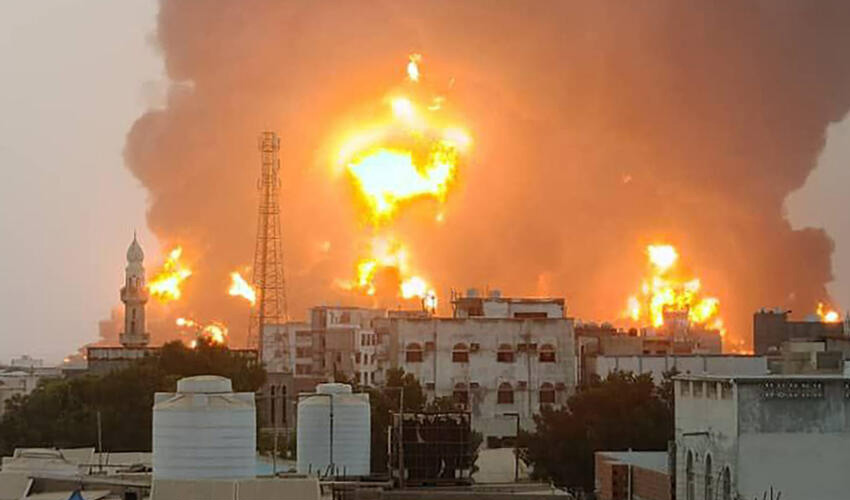Israel conducted airstrikes on Yemen's Red Sea port city of Hodeidah on Saturday in response to a deadly drone attack by the Houthi militia in Tel Aviv.
The assault marks a significant escalation in the ongoing conflict, raising tensions in the Middle East.
The Israeli military confirmed the strikes, stating they targeted "military installations" in Hodeidah. The operation came a day after the Houthi group claimed responsibility for a drone attack that killed one person in Tel Aviv, a rare and bold strike deep inside Israeli territory.
Houthi-affiliated Al Masirah TV reported that the airstrikes targeted oil storage facilities and a power plant in Hodeidah, igniting a fire and causing casualties, though the exact number remains undisclosed. The Israeli military's statement emphasized that their strikes were focused on military targets.
The Iran-allied Houthis, presenting themselves as Yemen's official armed forces, have intensified their campaign against Israeli interests, targeting shipping lanes in the Red Sea.
They assert that their actions are intended to pressure Israel to cease its military operations in Gaza. The group has launched numerous ballistic missiles and drones at Israel, most of which have been intercepted by Israeli defenses. However, the Friday drone attack that struck Tel Aviv was a significant breach of Israeli air security.
In response to the attack, Israeli Defense Minister Yoav Gallant vowed to retaliate against any entity threatening Israel's security, promising to "settle the score" with the Houthis.
The United States and the United Kingdom have been conducting airstrikes in Yemen for months, attempting to curb the Houthi attacks on Red Sea shipping lanes. Despite these efforts, the Houthi group's assaults have persisted, demonstrating their resilient operational capabilities.
In a defiant response to the Israeli airstrikes, Mohammed Abdulsalam, the Houthis' official spokesman, condemned the attack as "brutal Israeli aggression" aimed at deepening Yemen's suffering and coercing the country to halt its support for Gaza.
Abdulsalam reaffirmed Yemen's steadfast support for the Palestinian cause, stating that such aggression would only strengthen the resolve of the Yemeni people and their armed forces.
"The Yemeni people are capable of facing all challenges for the sake of victory for oppressed Palestine and the people of Gaza, whose cause is the most just on earth," Abdulsalam declared in a post on X (formerly Twitter).
The situation remains highly volatile as both sides brace for potential further escalations in a conflict that already has wide-reaching implications for regional stability.



























